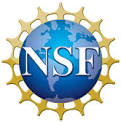The UNC Charlotte CResT (Culturally Responsive Teaching) Program supports outstanding mathematics, science, and engineering students in becoming middle and high school mathematics teachers through the Robert Noyce Teacher Scholarship. The UNCC CResT Program offers competitive, generous scholarships, summer internships, structured experiences in classrooms, seminars, mentoring by faculty and experienced teachers, and teaching opportunities to a cohort of eight entering juniors or seniors majoring in mathematics, science, or engineering. Once selected, the scholars will work towards a B.A. in Middle Grades Education with two content specializations, one of them being mathematics, or obtain a B.A./B.S. in mathematics with a secondary mathematics licensure.
The Noyce Scholarship provides tuition and expenses of $14,000 per year (for upto two years, or four semesters). During the program, Scholars will spend time in middle and high school classrooms working closely with culturally and linguistically diverse students and participate in regular seminars to develop their understanding of culturally responsive teaching. Mathematics educators and classroom teachers will be assigned as mentors to each Scholar to ensure their progress through the Scholarship Program.
In exchange for this support, Noyce Scholars agree to participate in the activities designed for the UNCC CResT Program and teach in a high-need school district upon graduation for two years for each year they receive the scholarship.
The UNCC CResT Program is funded by the National Science Foundation (NSF) through a national grant program also called the Robert Noyce Teacher Scholarship Program. The NSF supports this and other similar programs across the country with the goal of encouraging exceptional science, technology, engineering, and mathematics majors to become K-12 mathematics and science teachers. Furthermore, the program seeks to develop these promising new teachers into leaders in raising the bar, especially in high needs districts.
Note that students should be US Citizens or Permanent Residents.
This work is supported by the National Science Foundation under Grant No. 1660689


